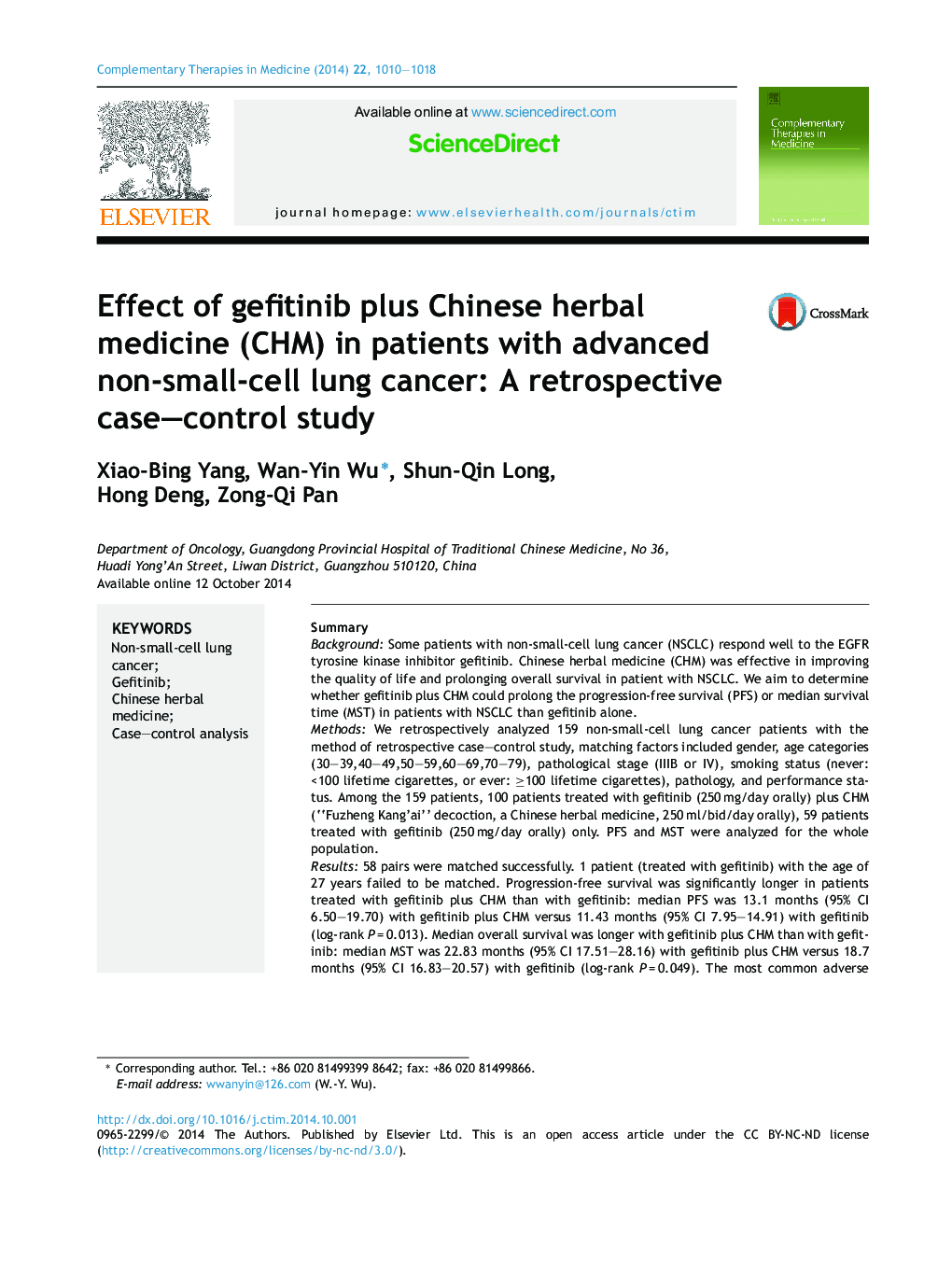| Article ID | Journal | Published Year | Pages | File Type |
|---|---|---|---|---|
| 5865641 | Complementary Therapies in Medicine | 2014 | 9 Pages |
â¢Gefitinib is effective in non-small-cell lung cancer patients with EGFR mutations.â¢The development of secondary resistance inevitably leads to treatment failure.â¢Chinese Herbal Medicine (CHM) may improve the quality of life, reduce recurrence rate and prolonging overall survival.â¢We conducted a case-control study to evaluate the efficacy of gefitinib plus CHM in patients with NSCLC.â¢Treatment with gefitinib plus CHM prolonged PFS and MST compared with gefitinib in patients with NSCLC, and it is worthy of further study.
SummaryBackgroundSome patients with non-small-cell lung cancer (NSCLC) respond well to the EGFR tyrosine kinase inhibitor gefitinib. Chinese herbal medicine (CHM) was effective in improving the quality of life and prolonging overall survival in patient with NSCLC. We aim to determine whether gefitinib plus CHM could prolong the progression-free survival (PFS) or median survival time (MST) in patients with NSCLC than gefitinib alone.MethodsWe retrospectively analyzed 159 non-small-cell lung cancer patients with the method of retrospective case-control study, matching factors included gender, age categories (30-39,40-49,50-59,60-69,70-79), pathological stage (IIIB or IV), smoking status (never: <100 lifetime cigarettes, or ever: â¥100 lifetime cigarettes), pathology, and performance status. Among the 159 patients, 100 patients treated with gefitinib (250 mg/day orally) plus CHM (“Fuzheng Kang'ai” decoction, a Chinese herbal medicine, 250 ml/bid/day orally), 59 patients treated with gefitinib (250 mg/day orally) only. PFS and MST were analyzed for the whole population.Results58 pairs were matched successfully. 1 patient (treated with gefitinib) with the age of 27 years failed to be matched. Progression-free survival was significantly longer in patients treated with gefitinib plus CHM than with gefitinib: median PFS was 13.1 months (95% CI 6.50-19.70) with gefitinib plus CHM versus 11.43 months (95% CI 7.95-14.91) with gefitinib (log-rank P = 0.013). Median overall survival was longer with gefitinib plus CHM than with gefitinib: median MST was 22.83 months (95% CI 17.51-28.16) with gefitinib plus CHM versus 18.7 months (95% CI 16.83-20.57) with gefitinib (log-rank P = 0.049). The most common adverse event was rash, the incidence in the gefitinib plus CHM group was 41.38% while in the gefitinib group was 24.14% (P = 0.048).ConclusionsThis case-control analysis suggested that treatment with gefitinib plus CHM prolonged PFS and MST compared with gefitinib in patients with NSCLC, and it is worthy of further study.
